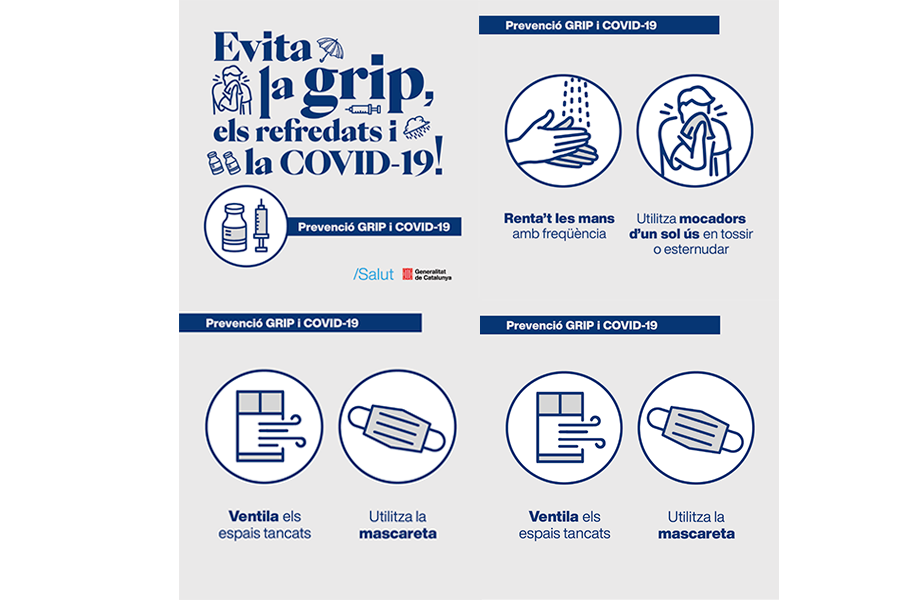Five tips to prevent respiratory diseases
Wash your hands frequently. Use disposable tissues when you coughing or sneezing. Wear a mask that covers your nose and mouth. Ventilate enclosed spaces. If you are 60 years of age or older, have a chronic illness, or are pregnant, get vaccinated against flu or COVID-19 .

To prevent any respiratory disease it is necessary to apply generic protection measures:
Wash yours hands frequently
Hand washing is the most effective measure to reduce the transmission of infections. It must be done with warm water and soap, preferably liquid and with a neutral pH (or with 70% alcohol solutions), up to the height of the wrists, with friction and rotation movements:
- Before and after going to the toilet.
- After sneezing, coughing or sneezing.
- When you get home after going out.
- Before preparing or eating any food.
- After touching raw food.
- Every time we handle rubbish, money, cardboard, etc.
- When we touch animals and animal food.
- After touching the railings of public stairs or the bars of public transport.
- After direct contact with sick people or their environment.
- And as long as your hands are dirty.
Cover your mouth and nose when coughing or sneezing
It must be done with disposable tissues or with the inside of the elbow and wash your hands immediately (with soap and water or with 70% alcohol solutions).
Avoid crowded spaces where agglomerations can occur
Transmission is easier if there are many people. If you have any pre-existing health conditions that could aggravate the spread, we recommend that you wear a mask in these spaces (especially if they are closed).
Put on your mask
The use of the mask is highly recommended for all people aged six and over in health centers, or if you work or visit a social health center or a residence for the elderly. In workplaces, it is the health and safety service that must inform workers if they must wear it.
Ventilate closed spaces often
Ventilation is key to avoid the concentration of the virus in a closed space.
It has been shown that the risk of contagion inside buildings is higher than outside.
Therefore, it is important to ventilate closed spaces as much as possible to promote sufficient air renewal, as well as carry out those activities outdoors that allow this.
In order for the ventilation to be effective, it is advisable to open windows or doors that are opposite each other, so that the air flows.
If you have ventilation and air conditioning systems, keep as much outside air as possible. If these systems are decentralized and therefore only circulate indoor air, supplement them with natural ventilation by opening windows and doors, or run them at low fan speeds. The equipment must be in a good state of maintenance.
Source: Cat Salut